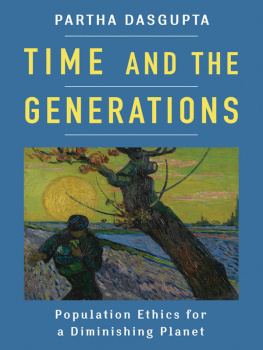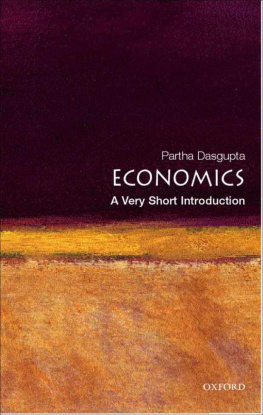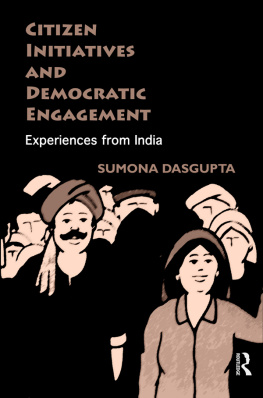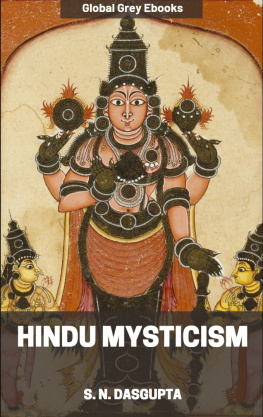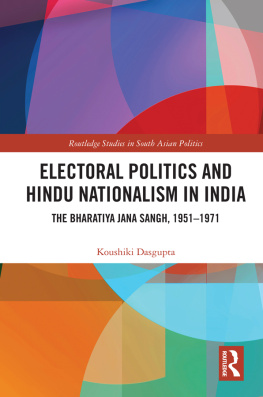Table of Contents
Time and the Generations
KENNETH J. ARROW LECTURE SERIES
KENNETH J. ARROW LECTURE SERIES
Kenneth J. Arrows work has so deeply shaped the course of economics for the past sixty years that, in a sense, every modern economist is his student. His ideas, style of research, and breadth of vision have been a model for generations of the boldest, most creative, and most innovative economists. His work has yielded seminal theorems in areas such as general equilibrium theory, social choice theory, and endogenous growth theory, proving that simple ideas have profound effects. The Kenneth J. Arrow Lecture Series highlights economists, from Nobel laureates to groundbreaking younger scholars, whose work builds on Arrows scholarship as well as his innovative spirit. The books in the series are an expansion of the lectures that are held in Arrows honor at Columbia University.
The lectures have been supported by Columbia Universitys Committee on Global Thought, Program for Economic Research, Center on Global Economic Governance, and Initiative for Policy Dialogue.
Creating a Learning Society: A New Approach to Growth, Development, and Social Progress, Joseph Stiglitz and Bruce Greenwald
The Arrow Impossibility Theorem, Eric Maskin and Amartya Sen
Speculation, Trading, and Bubbles, Jose Scheinkman
Moral Hazard in Health Insurance, Amy Finkelstein
Creating a Learning Society: A New Approach to Growth, Development, and Social Progress, Readers Edition, Joseph Stiglitz and Bruce Greenwald
Discovering Prices: Auction Design in Markets with Complex Constraints, Paul Milgrom
Ethical Asset Valuation and the Good Society, Christian Gollier
TIME AND THE GENERATIONS
Population Ethics for a Diminishing Planet
Partha Dasgupta
With Robert Solow, Scott Barrett, Eric Maskin, Joseph Stiglitz, and Aisha Dasgupta With reflections from Kenneth J. Arrow
Columbia University Press
New York
Columbia University Press gratefully acknowledges the generous support for this book provided by a member of our Publishers Circle.
Columbia University Press
Publishers Since 1893
New York Chichester, West Sussex
cup.columbia.edu
Copyright 2019 Columbia University Press
All rights reserved
E-ISBN 978-0-231-55003-1
Library of Congress Cataloging-in-Publication Data
Names: Dasgupta, Partha, author.
Title: Time and the generations: population ethics for a diminishing planet / Partha Dasgupta; with [five others].
Description: New York: Columbia University Press, 2019. | Series: The Kenneth J. Arrow lecture series | Includes bibliographical references and index.
Identifiers: LCCN 2018048438 (print) | LCCN 2018050795 (e-book) | ISBN 9780231550031 (e-book) | ISBN 9780231160124 (cloth: alk. paper)
Subjects: LCSH: Population policyMoral and ethical aspects. | Nonrenewable natural resources.
Classification: LCC HB883.5 (e-book) | LCC HB883.5 .D37 2019 (print) | DDC 174/.93639dc23
LC record available at https://lccn.loc.gov/2018048438
A Columbia University Press E-book.
CUP would be pleased to hear about your reading experience with this e-book at .
Cover design: Noah Arlow
Cover image: Vincent van Gogh, The Sower (after Millet), 1888, Van Gogh Museum, Amsterdam
To Carols and my children, and to their children
Like the generations of leaves, the lives of mortal men. Now the wind scatters the old leaves from the earth, now the living timber bursts with new buds and spring comes round again. And so with men: as one generation comes to life, another dies away.
THE ILIAD, TRANS. ROBERT FAGELS, BOOK 6, LNS. 17175 (PENGUIN BOOKS, 1998)
Contents
; and so on). Even in his more discursive papers, Arrow offered insights that have repeatedly been used by others to build their own work. You will find in your internet search that he was not only admired universally for his brilliance and creativity, but, more importantly, that he was much loved. In an international ballot among economists some twenty years ago, he was voted the greatest economist of the twentieth century. Arrow was not unaware of his natural gifts, and because he did it unconsciously, he was not reticent about displaying them; however, for a reason I discovered many years ago, none of that ever grated on others (I will come to that later in this tribute). His presence may have caused others to balk before speaking, but he was never intimidating.
Those intellectual gifts included not only an exceptionally creative mind, but also the ability to read at speed, distilling from what he read their essential elements and recalling them when he had need to do so. And he was a voracious reader of whatever lay close to handbooks, journals, newspapers, magazines. There is a story, that at the time of his move from Stanford to Harvard in 1968, the younger members of Harvards Economics Department devised a plan to open a discussion on a subject of which they were confident Arrow would be innocent. (I imagine they connived in this way so as to retain some form of respect for their own abilities.) In anticipation of a dinner in Arrows honor, the group read all of what they thought was then available on how gray whales find the same breeding ground every year. The topic was duly introduced at the dinner, casually of course, and the protagonists talked at length on the subject. Arrow, as the story goes, remained quiet, but before the conversation moved on to other things, he murmured, But I thought Turners theory was discredited by Spencer, who showed the supposed homing mechanism couldnt possibly work. The story isnt apocryphalI once asked Arrow if it was truehe didnt say no.
We at the Pontifical Academy of Social Sciences (PASS) remember him as a dedicated Member, duly attending meetings and being fully engaged in our discussions (even while taking his renowned naps during sessions). He was proud of being Member of PASS and loved staying in Domus Santae Marthae. On every occasion we were both at a PASS meeting, he would pick me up from my room upon arrival at the Domus so that we could visit his favorite coffee shop, near the Pantheon, and catch up on our thinking.
Kenneth Arrow was born in New York City on 23 August 1921 to Lillian Greenberg and Harry Arrow, both Romanian immigrants of the Jewish faith. A younger sister, Anita (Summers)Emeritus Professor at the Wharton School, University of Pennsylvaniasurvives him. The family income dropped precipitously during the Depression, so the Arrow family was poor for a number of years. Ken once said to me in passing that he walked several miles each day to school. As I understand it, his exceptional intellectual gifts were recognized early. He attended City College New York for his undergraduate studies, graduating in mathematics in 1940, and moved to Columbia University for graduate studies, obtaining his Masters degree in mathematics and statistics in 1941. There he came under the influence of the great economist/statistician Harold Hotelling, who helped him to obtain a scholarship to study for a PhD, but in the Economics Department. As Arrow told the story, Hotelling said he had no influence over the Mathematics Department, so could not be of help obtaining funds there.









